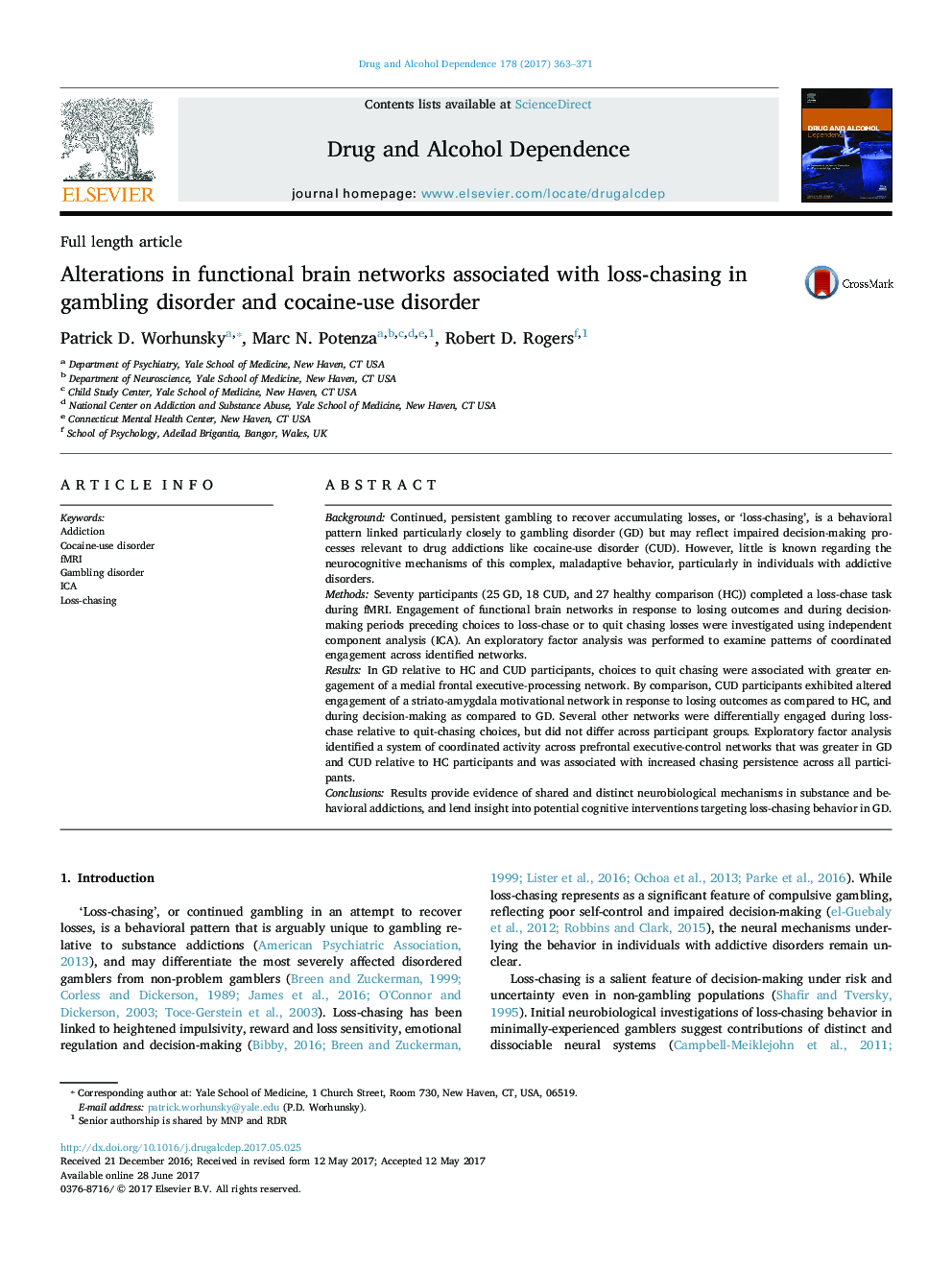| کد مقاله | کد نشریه | سال انتشار | مقاله انگلیسی | نسخه تمام متن |
|---|---|---|---|---|
| 5120365 | 1486113 | 2017 | 9 صفحه PDF | دانلود رایگان |
- Little is known regarding the neural correlates of loss-chasing behavior.
- Functional networks and patterns of engagement during loss-chasing were examined.
- Findings include shared and distinct mechanisms in substance-use and behavioral addictions.
BackgroundContinued, persistent gambling to recover accumulating losses, or 'loss-chasing', is a behavioral pattern linked particularly closely to gambling disorder (GD) but may reflect impaired decision-making processes relevant to drug addictions like cocaine-use disorder (CUD). However, little is known regarding the neurocognitive mechanisms of this complex, maladaptive behavior, particularly in individuals with addictive disorders.MethodsSeventy participants (25 GD, 18 CUD, and 27 healthy comparison (HC)) completed a loss-chase task during fMRI. Engagement of functional brain networks in response to losing outcomes and during decision-making periods preceding choices to loss-chase or to quit chasing losses were investigated using independent component analysis (ICA). An exploratory factor analysis was performed to examine patterns of coordinated engagement across identified networks.ResultsIn GD relative to HC and CUD participants, choices to quit chasing were associated with greater engagement of a medial frontal executive-processing network. By comparison, CUD participants exhibited altered engagement of a striato-amygdala motivational network in response to losing outcomes as compared to HC, and during decision-making as compared to GD. Several other networks were differentially engaged during loss-chase relative to quit-chasing choices, but did not differ across participant groups. Exploratory factor analysis identified a system of coordinated activity across prefrontal executive-control networks that was greater in GD and CUD relative to HC participants and was associated with increased chasing persistence across all participants.ConclusionsResults provide evidence of shared and distinct neurobiological mechanisms in substance and behavioral addictions, and lend insight into potential cognitive interventions targeting loss-chasing behavior in GD.
Journal: Drug and Alcohol Dependence - Volume 178, 1 September 2017, Pages 363-371
